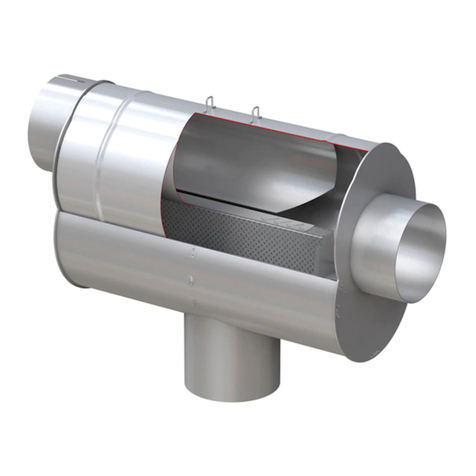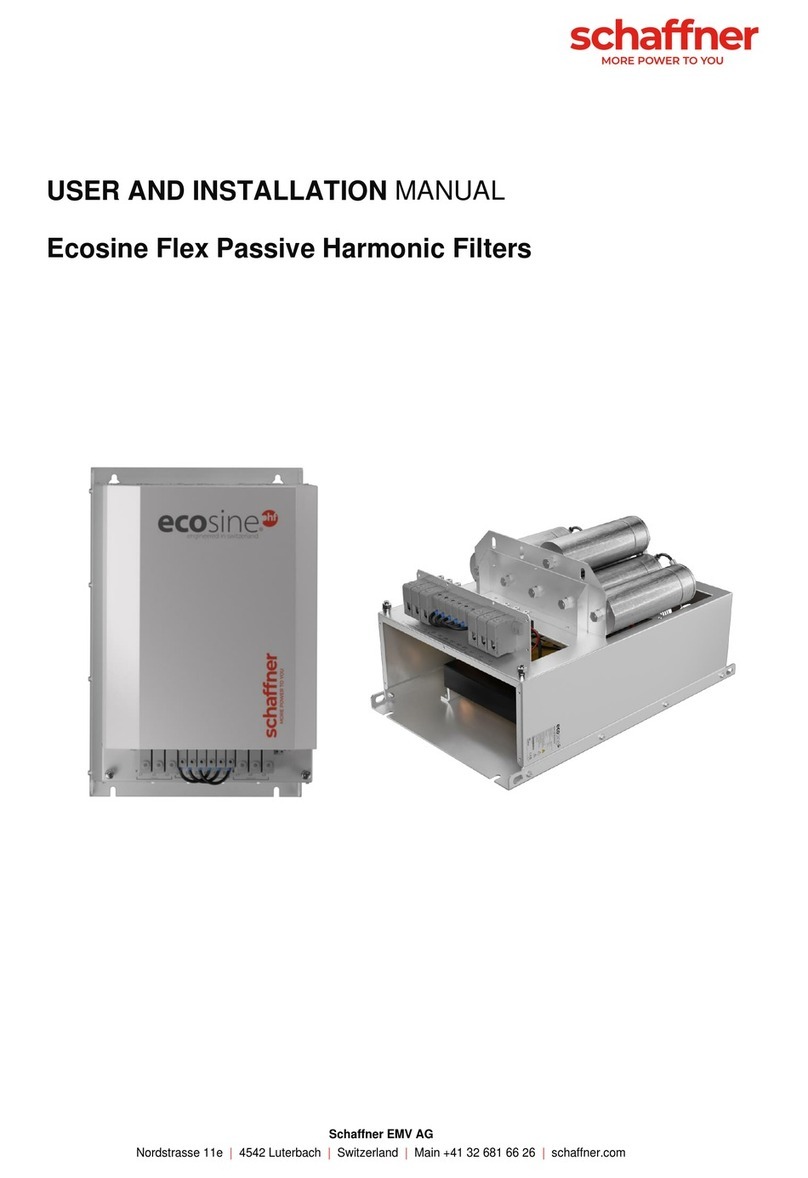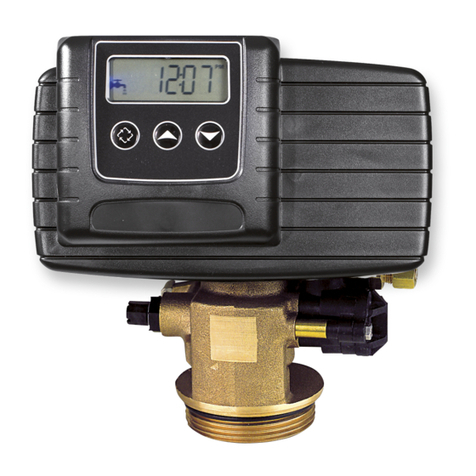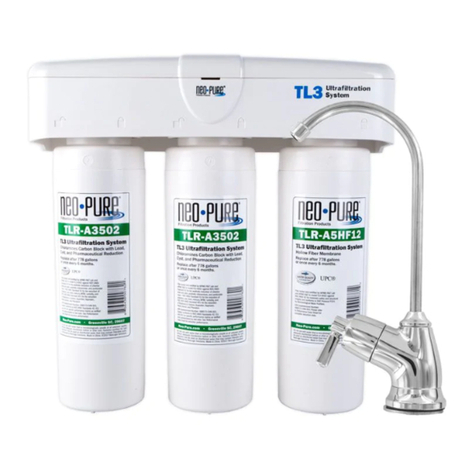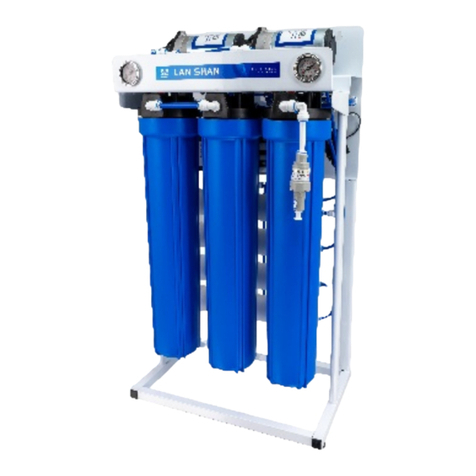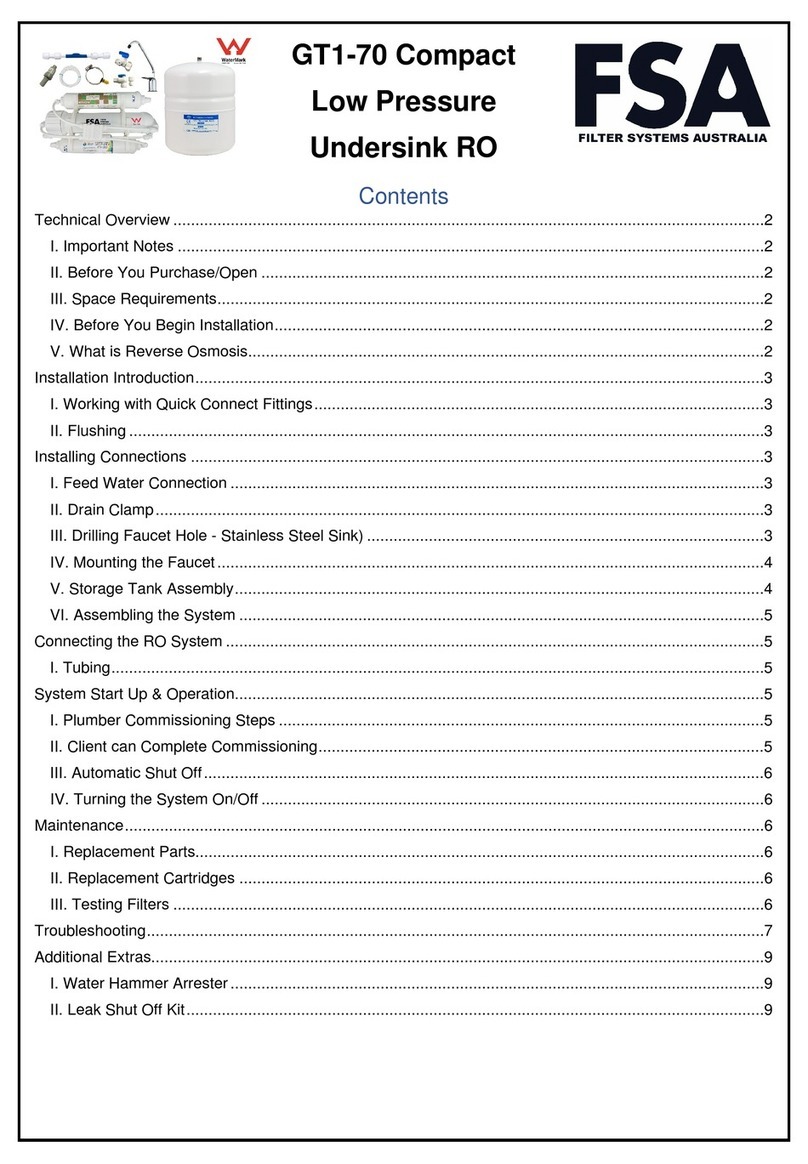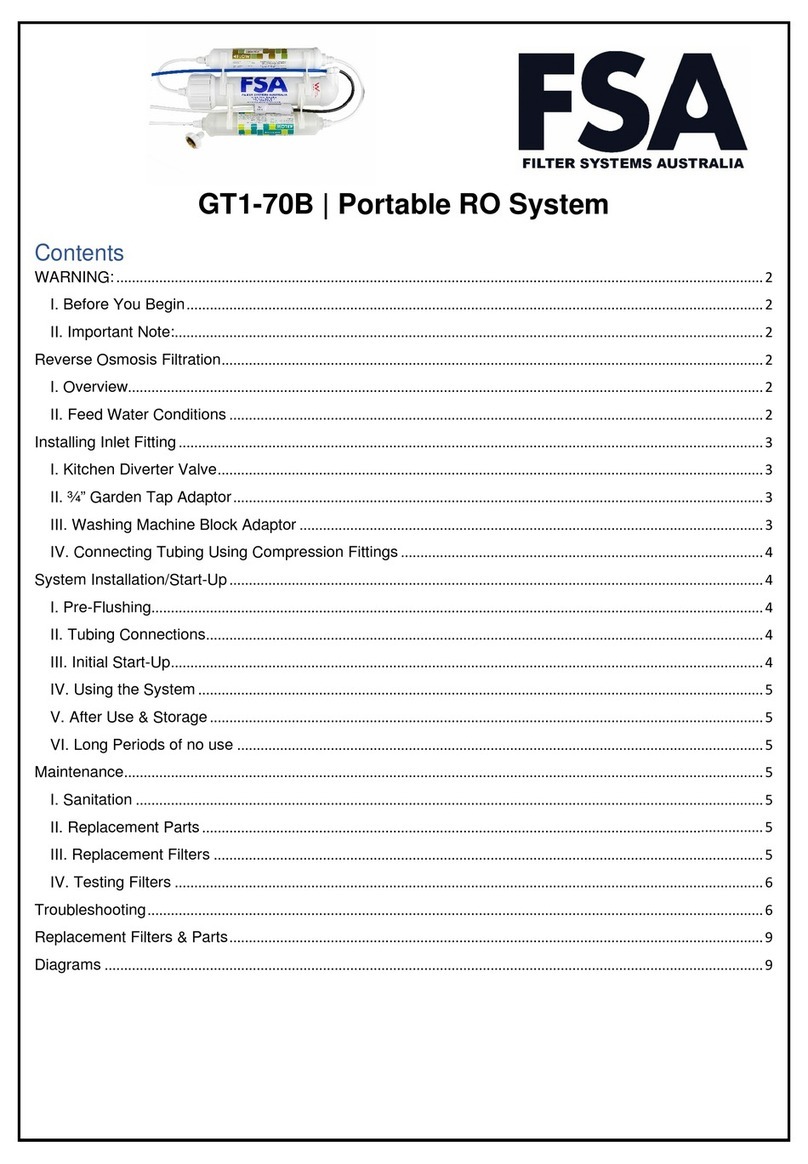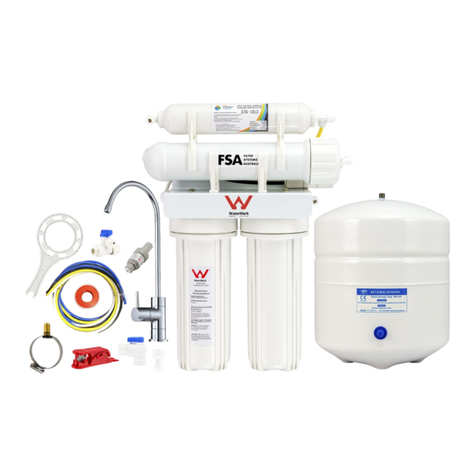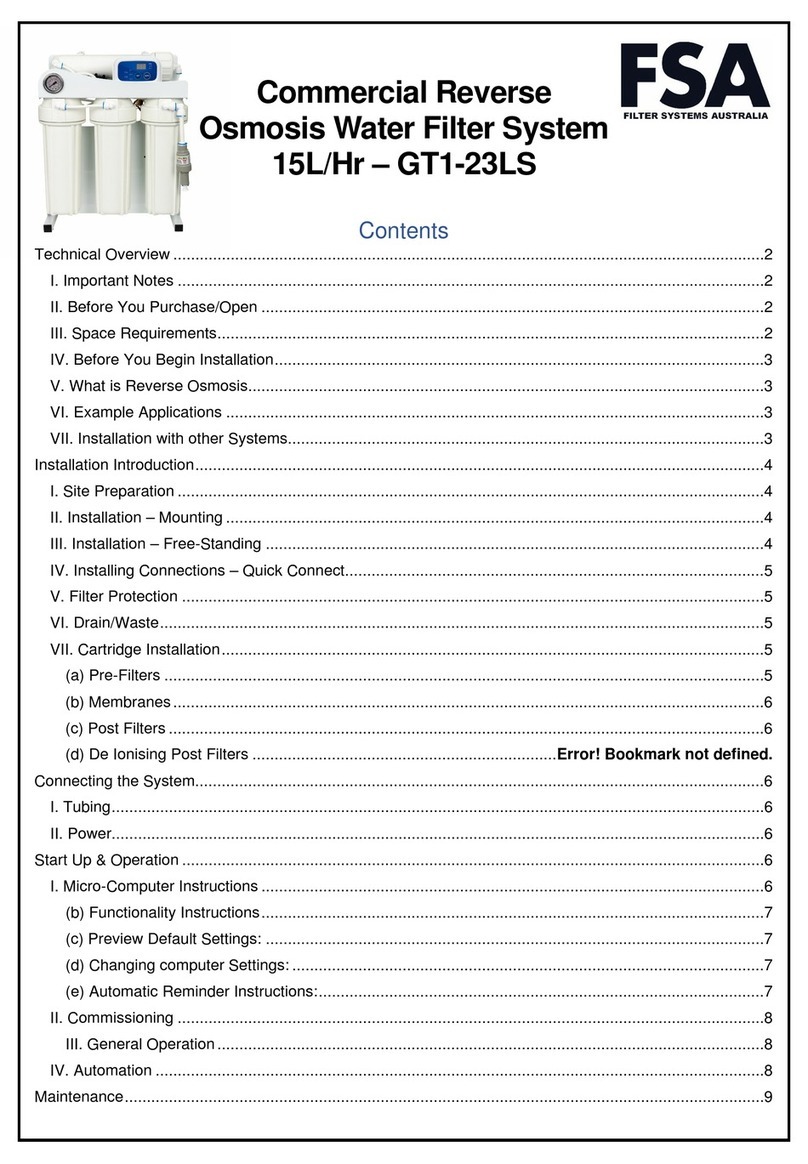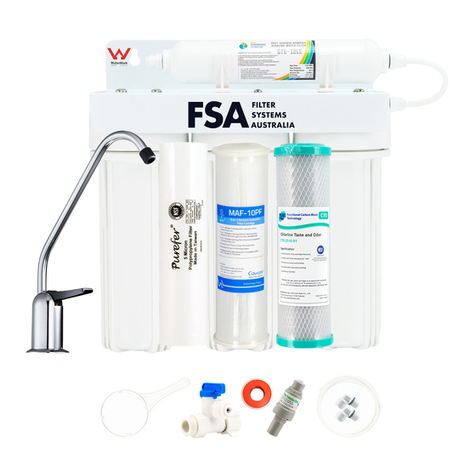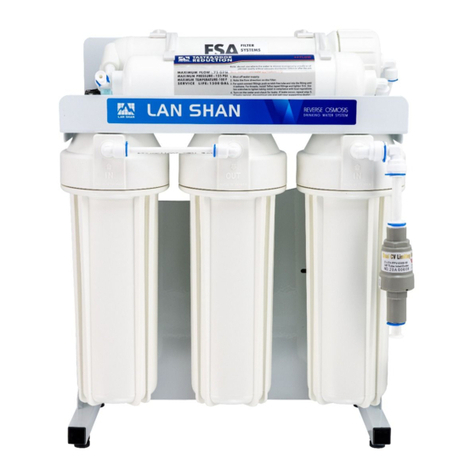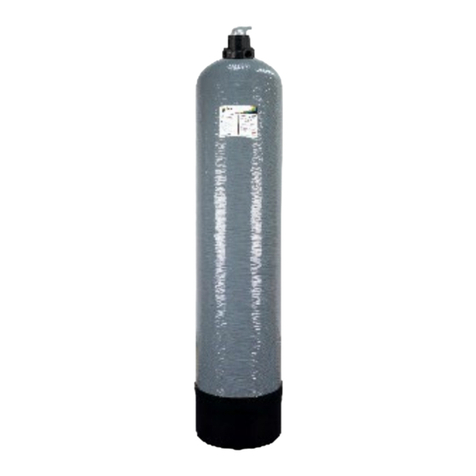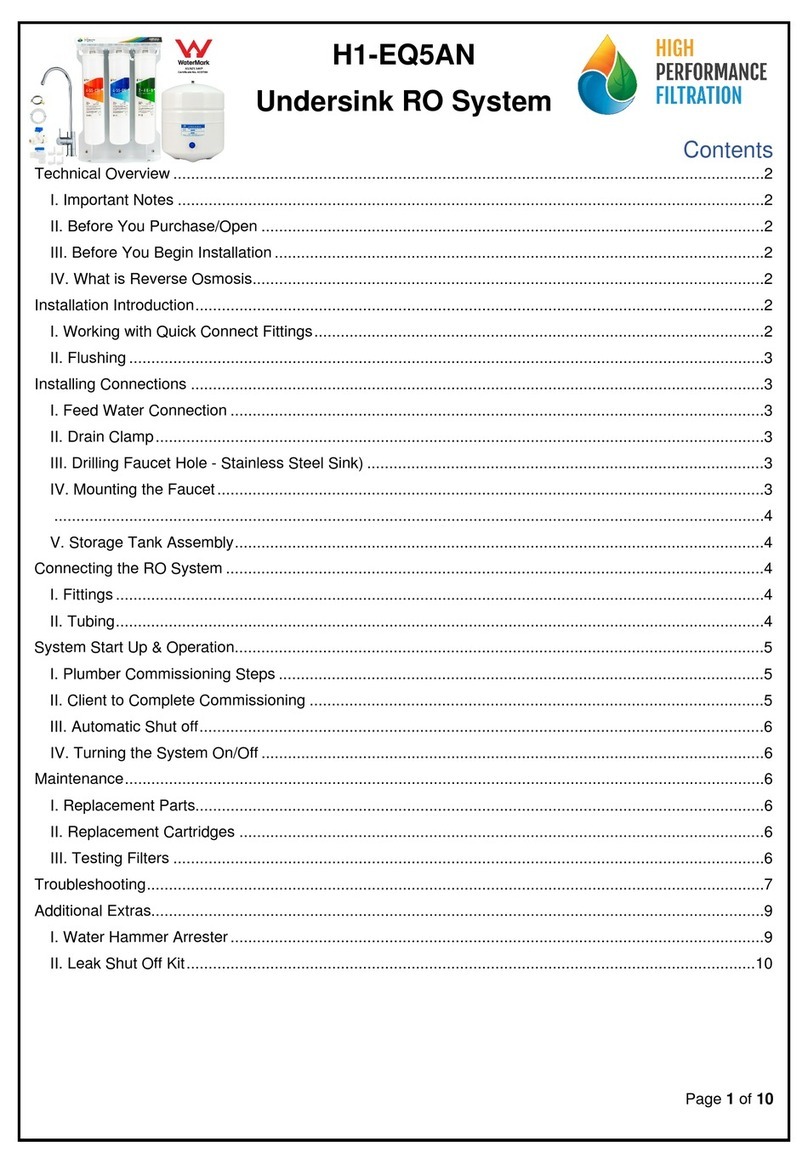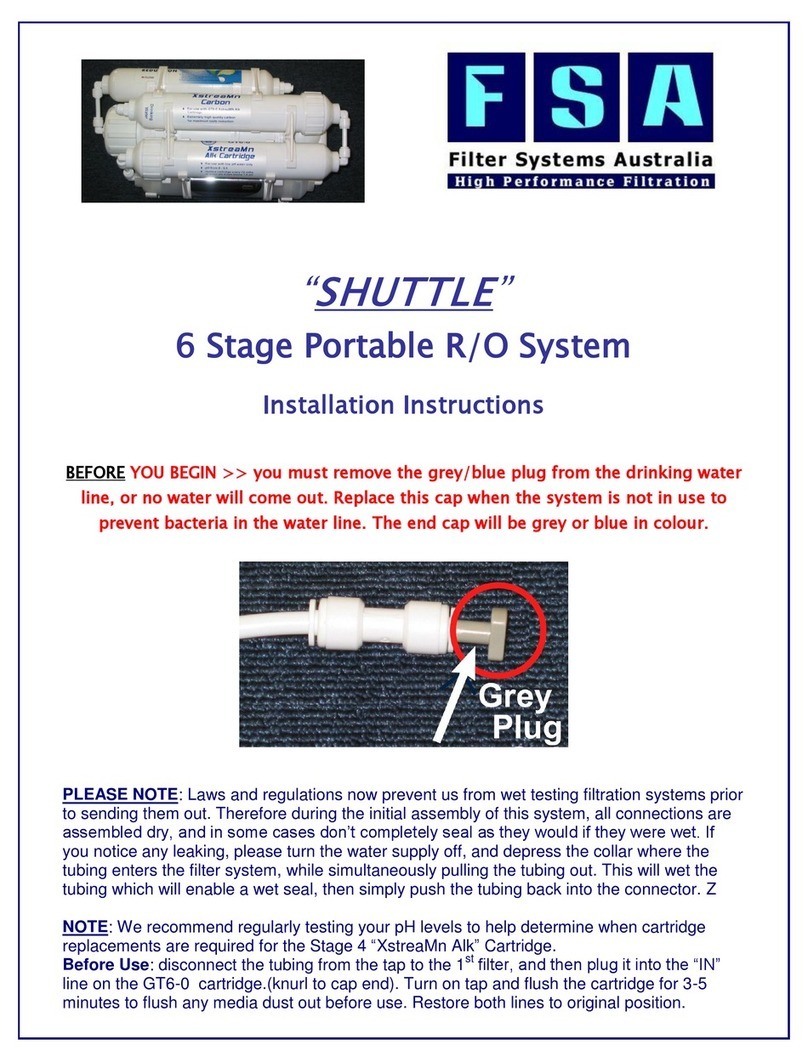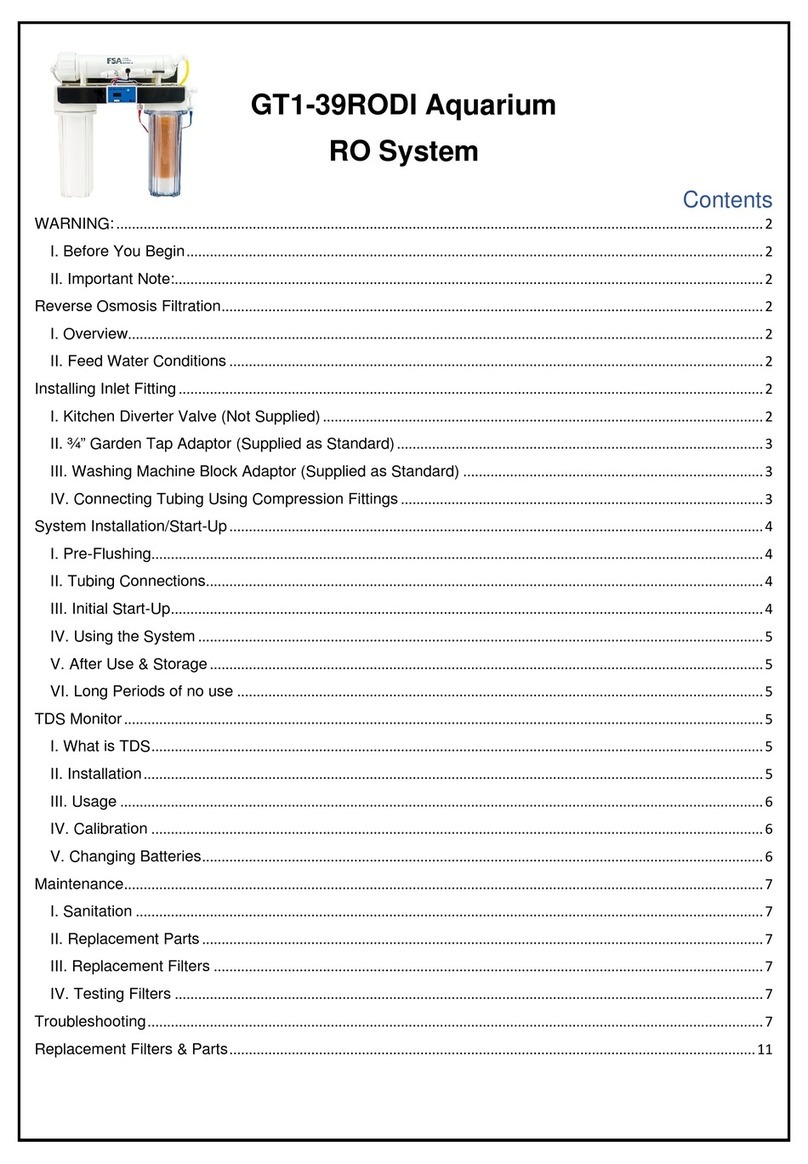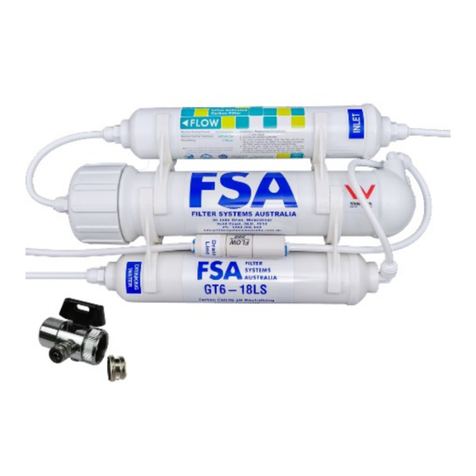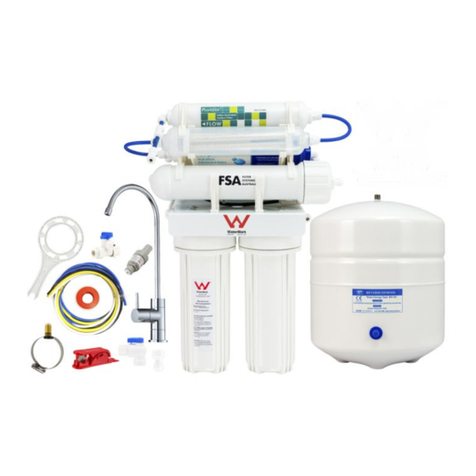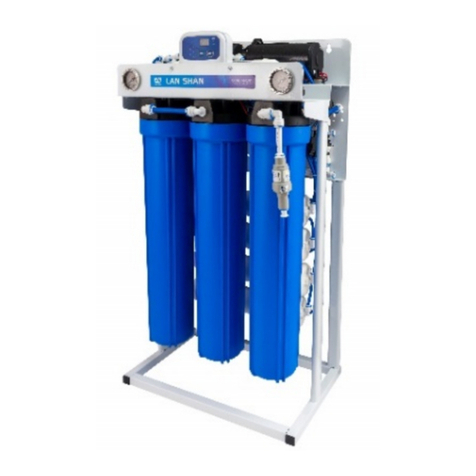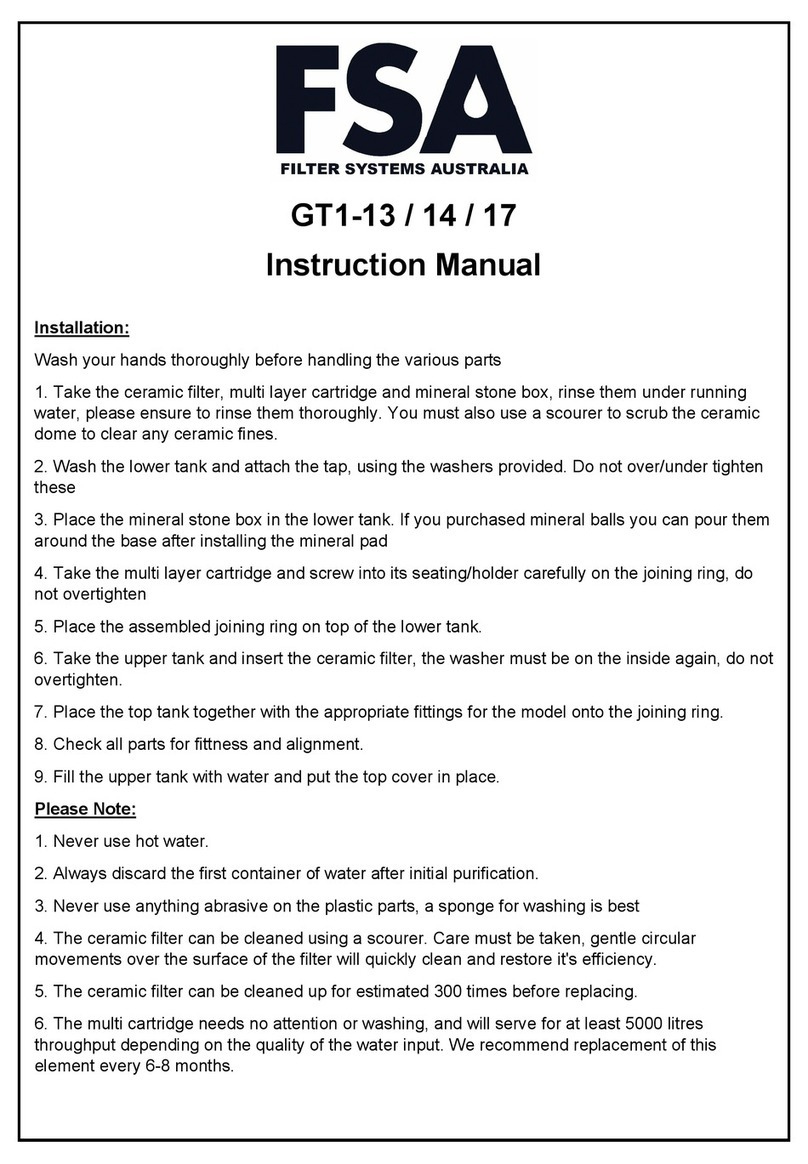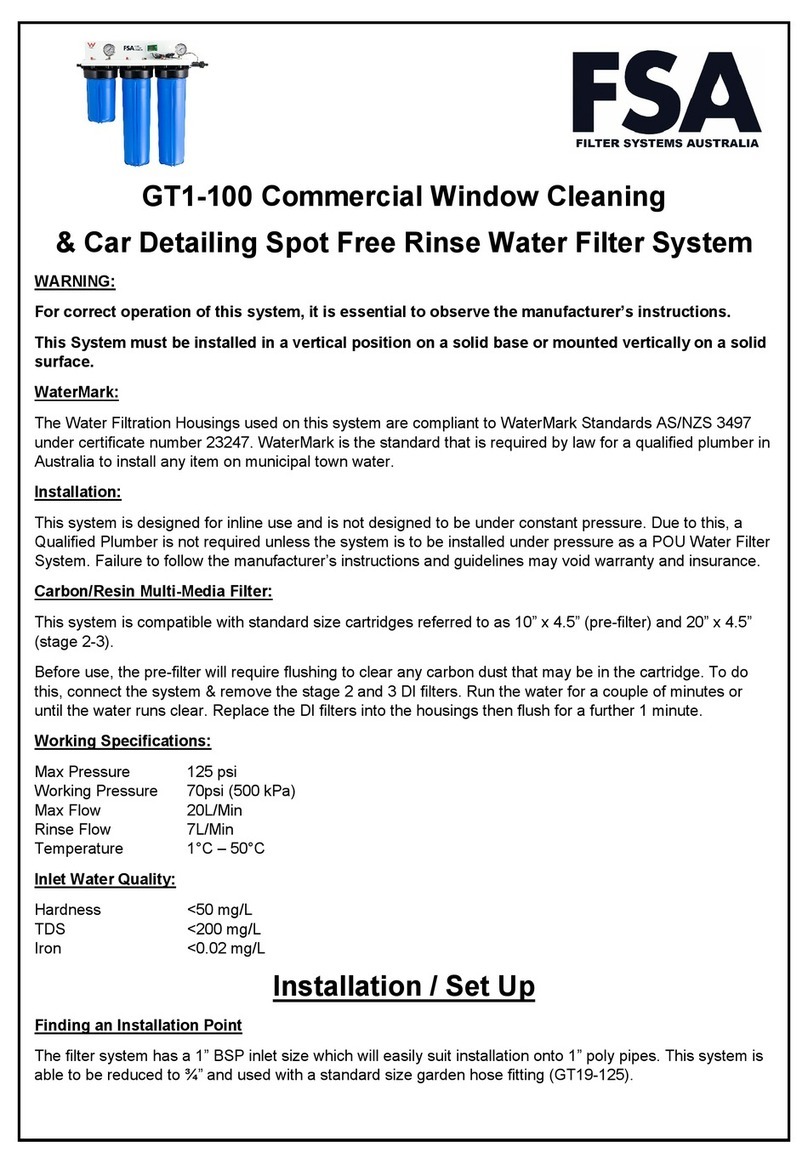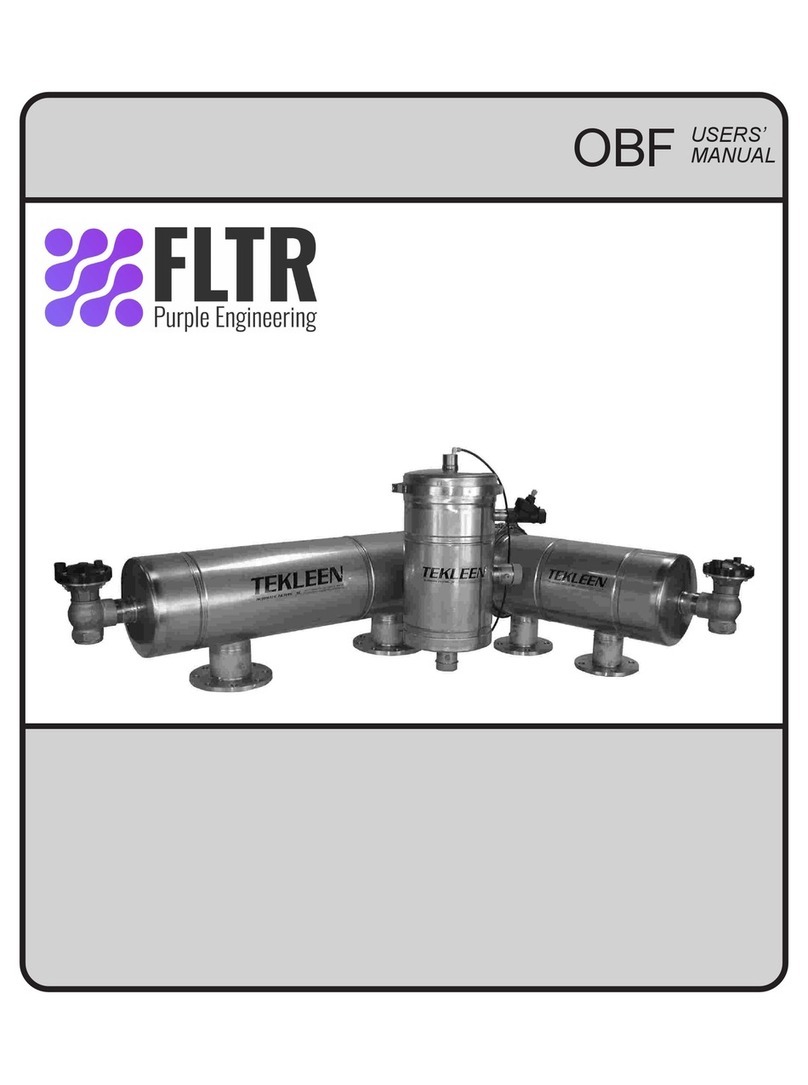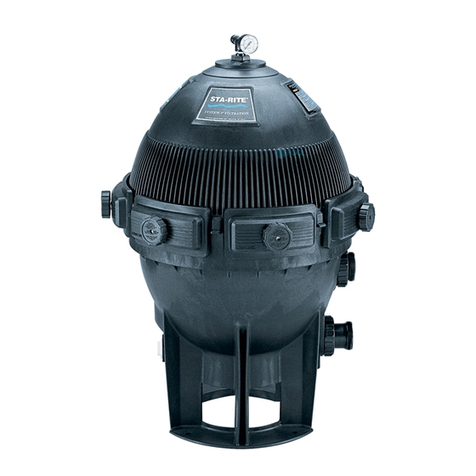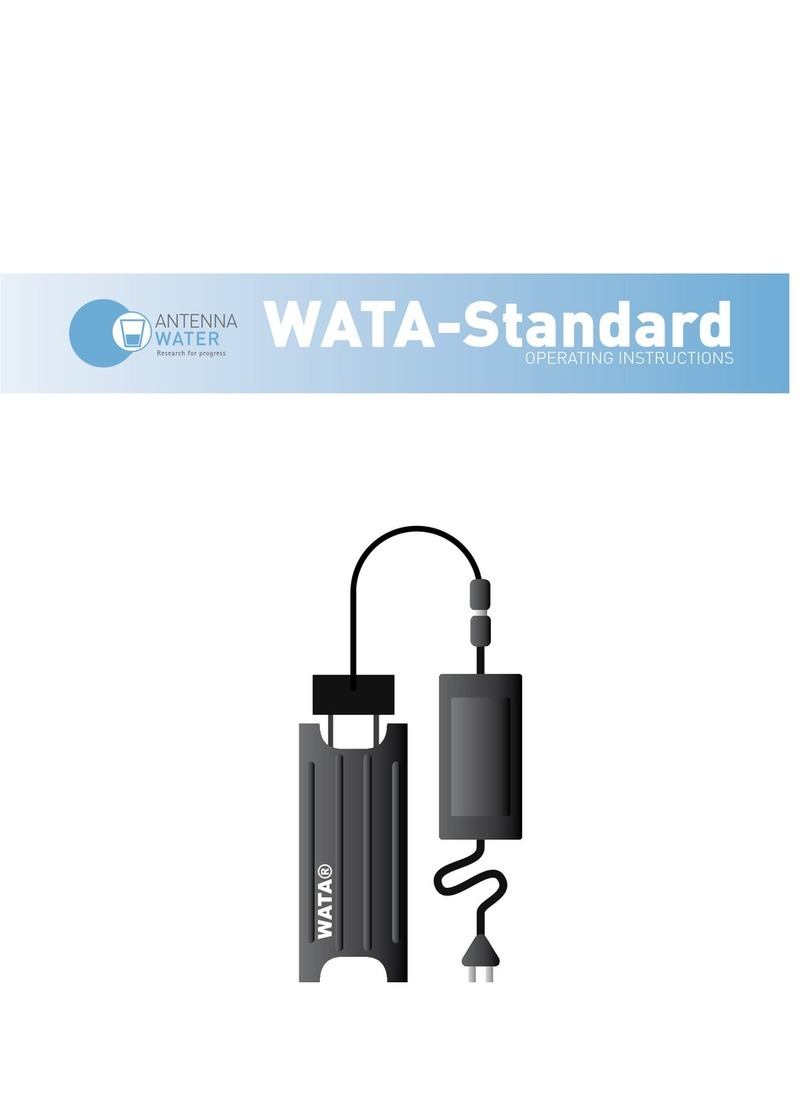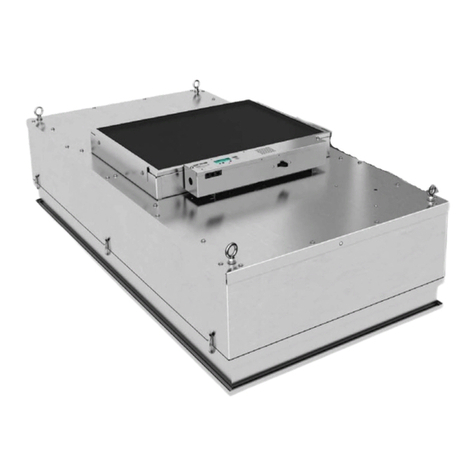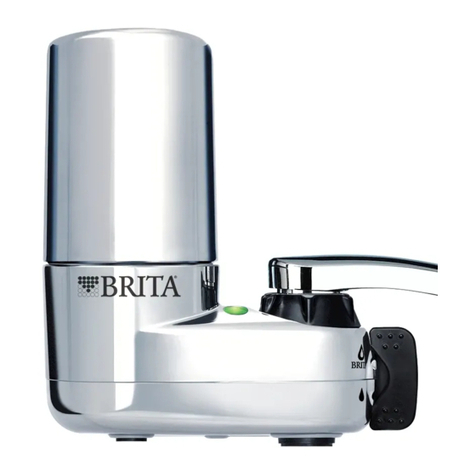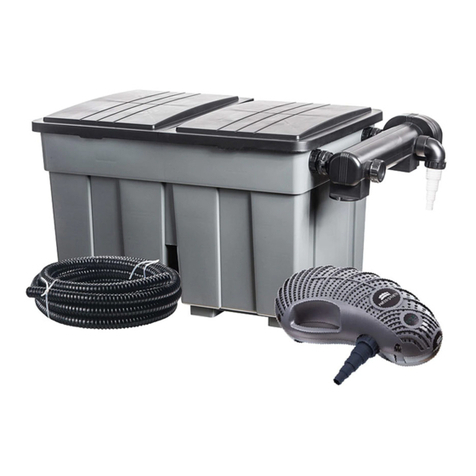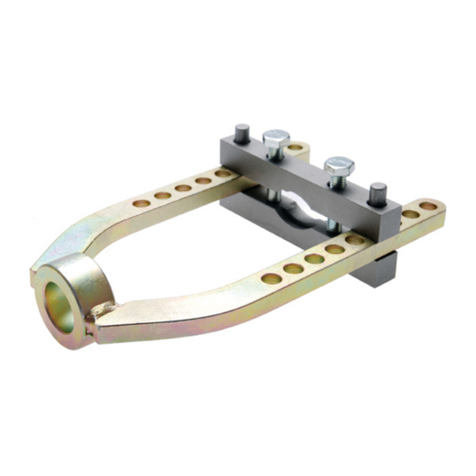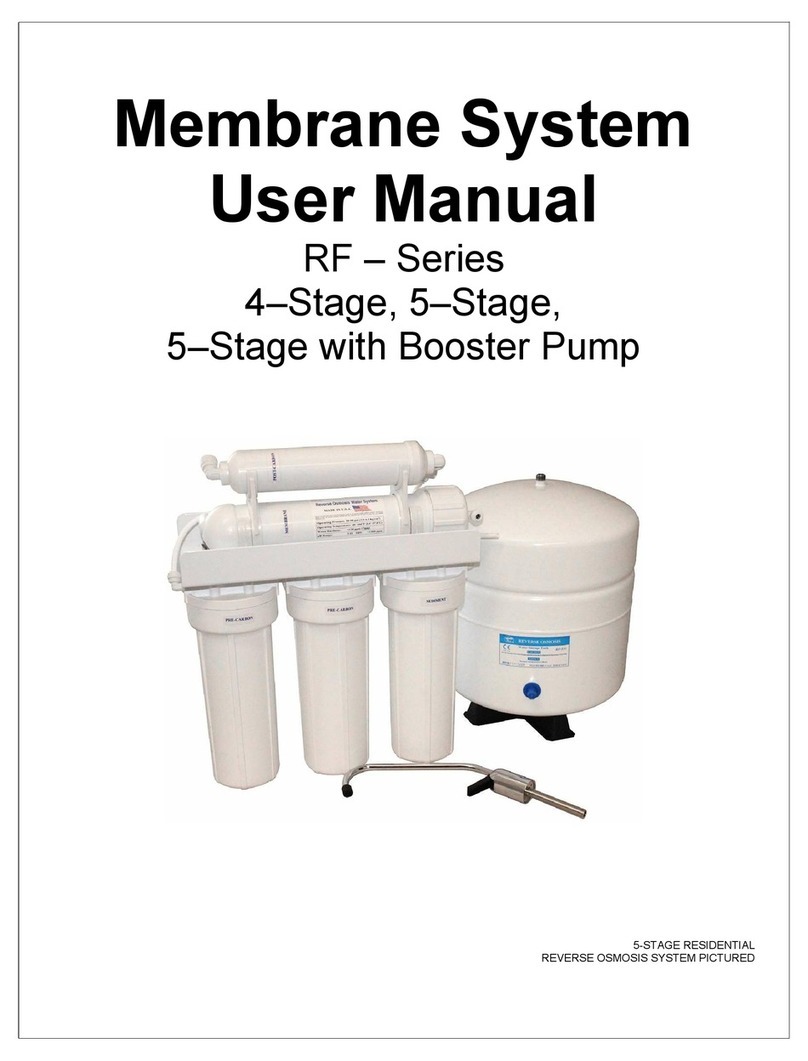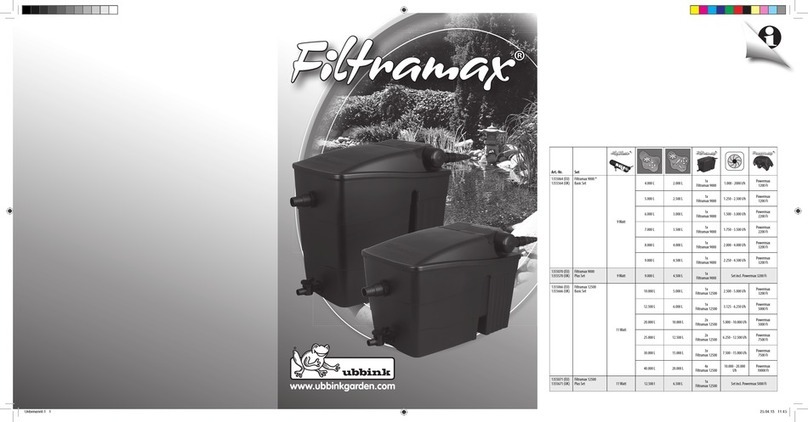
Page | 9
as hardness and salt can cause the system to block or not
produce water.
more wastewater
than filtered water
2. Water Quality
3. Blockage
1. Our units are designed to run at approx. 1:1 – 1:2
wastewater ratio at 70 psi. If your pressure is lower than 70
psi, the production rate may decrease and cause more drain
water than filtered water.
2. If your inlet water quality is poor and contains higher salts
and hardness the filter may produce less water than the
specified amount.
3. If you have good pressure, and average water quality it is
possible there is a small blockage somewhere in the system.
Try to follow the water flow along the system, disconnecting 1
tube at a time to try and pinpoint where the water is ‘stopping’
(If Applicable)
2. GAC Filter
3. Insufficient
Testing Equipment
1. Alkaline Filters are designed to increase the pH of the water.
When the filter is new it will be high but will soon settle to the
advertised levels after adequate flushing.
2. If you have a post GAC filter (Carbon), this will naturally
increase the pH of the water. pH is the measure of Hydrogen
in the water and this hydrogen will vent off the water if you
leave it to stand and the pH will then drop back down to the
normal level.
3. pH testing equipment can range from a cheap test pen right
up to lab grade equipment. Before coming to a conclusion on
pH issues, it is best to ensure the equipment used to measure
the pH of the RO water is of high standards and suitable for
reading pH levels in low EC water (i.e. The guy at the pool
shop is not going to cut it). We have access to high quality
testing equipment and frequently test our units and conduct
research. If you feel that there is an issue with your pH, please
the water (New
System)
(If Applicable)
2. Residue
3. Contamination
1. If you are using an alkaline filter system, the unit requires
adequate flushing before first use. Usually, all taste is gone
within a week of use. This taste is normal and in most cases is
your body adjusting to the high pH water (which some people
can describe as a slight metallic taste).
2. The filters are dry packed, the carbons, alkaline filters will
have ‘fines’ on them as they are granular medias, this will go
away with flushing. The membrane has a food grade preserve
inside it to prevent contamination during storage, this will also
flush away quickly.
3. Bacterial contamination is highly unlikely, but not
impossible. If there is a strong ‘foul smell’ or organic taste to
the water, it is possible that there is some form of
contamination. Contact us straight away so we can rectify (or
diagnose) the problem if there is one present.
Higher than the
inlet water (or the
same).
2. Alkaline Filter
3. Expired Filters
1. While filters are new, it is normal for the TDS to be elevated
while the system is flushing. Continue flushing the system &
contact support if the high TDS persists longer than 1 week.
2. Alkaline filters will naturally increase the TDS of the water,
especially when new. If you have low TDS water already, it is
possible for the TDS level out of the alkaline filter to be higher
than your inlet water. This is because you are adding minerals
back into the water therefore increasing the TDS and alkalinity.
3. If the filters have not been changed as per the
recommendations, it is likely that the increased TDS is due to
the filters needing replacing.
4. This is common as sometimes the lines may be mixed up.
Make sure that the tubing connected to the ‘Drain Line’ flow
